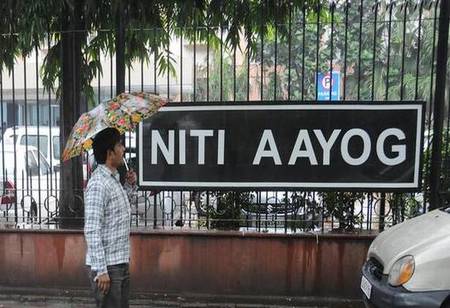
Implementing Privatization, NITI Aayog Adds 12 PSUs to its First List


NITI Aayog is all set to initiate the privatisation drive has submitted its first list that consists of about 12 PSUs (Public Sector Undertakings) to be privatised.
However, the list submitted by the government’s policy think tank also includes PSU’s in their strategic sectors and would be reviewed by the Department of Investment and Public Asset Management (DIPAM), and the core Group of Secretaries on Divestment (CGD) that has been headed by the cabinet secretary, says report.
Also, the list submitted by the government comprises of PSBs (public sector banks) and insurance companies and would be its first following the government’s ambitious drive to privatise PSUs as announced by Finance Minister Nirmala Sitharaman in Budget 2021. This would clear the way for the Centre to go ahead with its Rs 1.75 lakh crore disinvestment target for the next financial year.
The said strategic sectors, in which the government wants to keep a "bare minimum" presence, petroleum, comprise power, coal, and other minerals, atomic energy, space, defence, banking, insurance, and financial services, transport and telecommunications.
Meanwhile, PSEs functioning as autonomous organisations, regulatory authorities, trusts, and development financing institutions such as FCI (Food Corporation of India) and the AAI (Airports Authority of India) have been kept out of the policy. PSUs in non-strategic sectors such as steel and hospitality would be either privatised or closed.
In her Budget speech, FM Sitharaman stated that privatising two PSBs and one general insurance company are in books for 2021-22. According to the new PSE (Public Sector Enterprise) policy for Aatmanirbhar Bharat, NITI Aayog is entrusted with the task to suggest the names of PSUs in strategic sectors to be merged, privatised, or made subsidiaries of other PSUs.
Once the CGD considers NITI Aayog's recommendations, it will give its suggestions to the Alternative Mechanism (AM) that consist of the finance minister, the minister for roads, transport and highways, and the minister for administrative reforms.